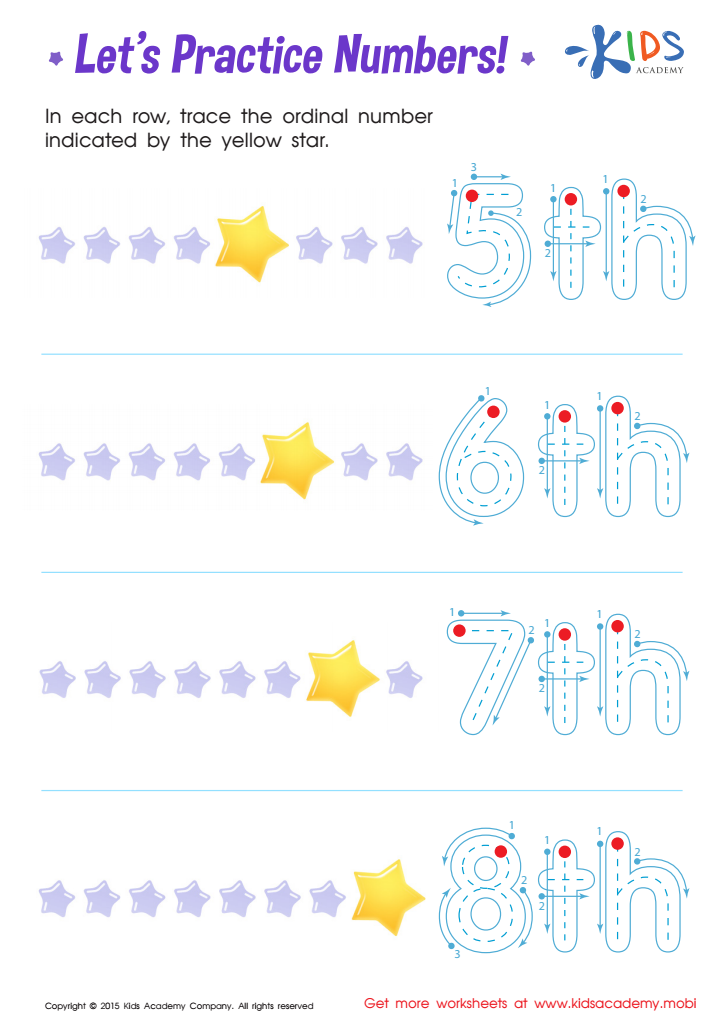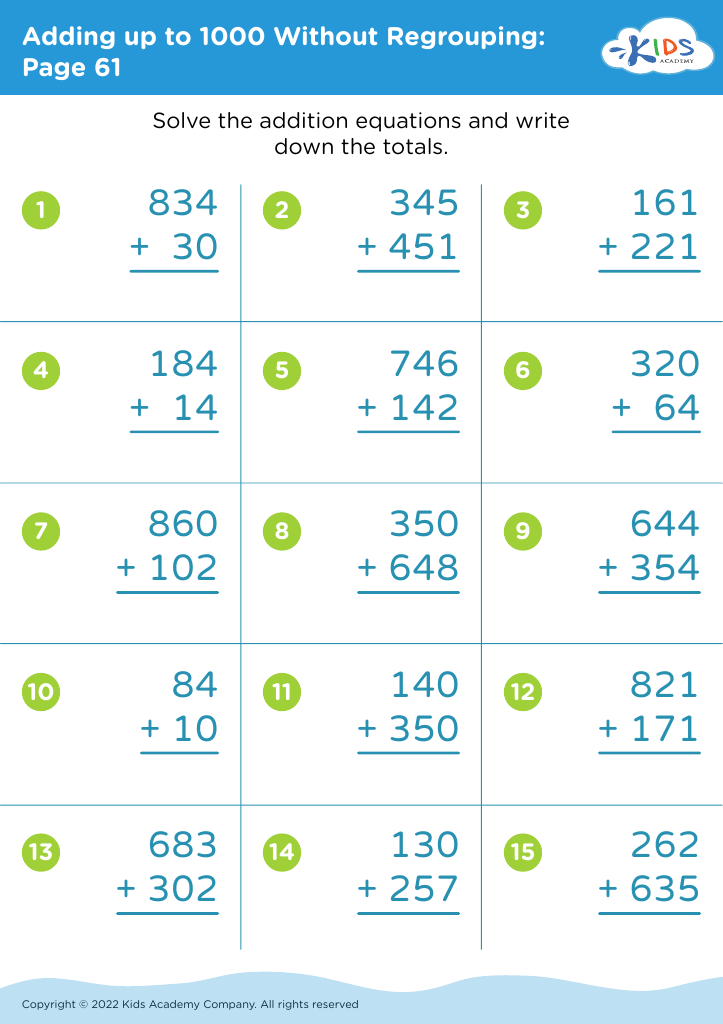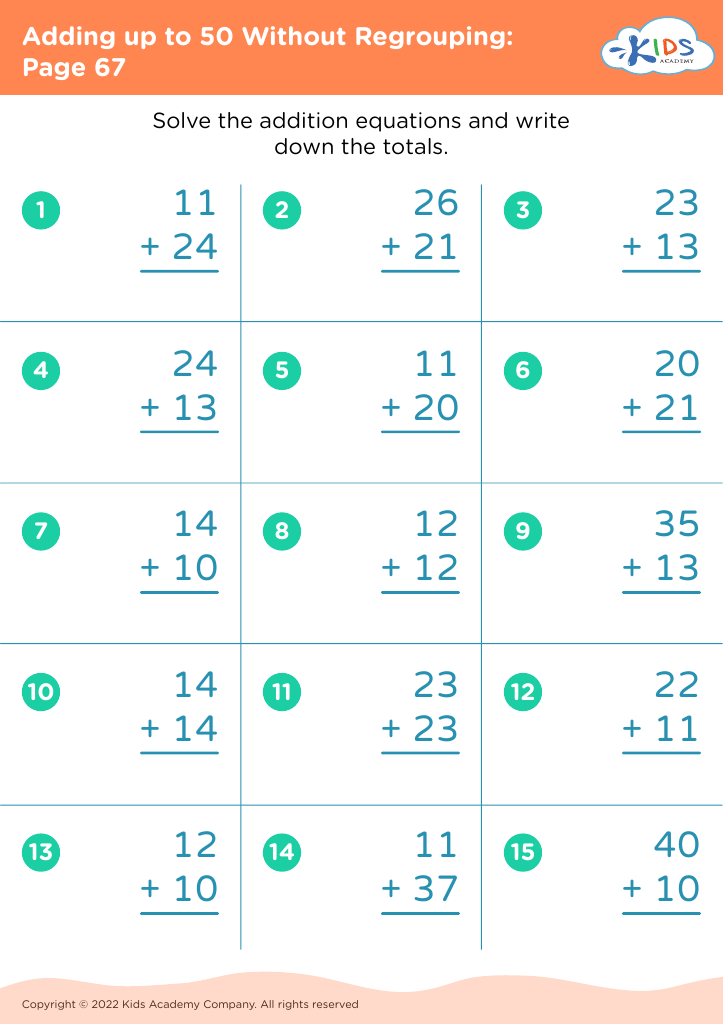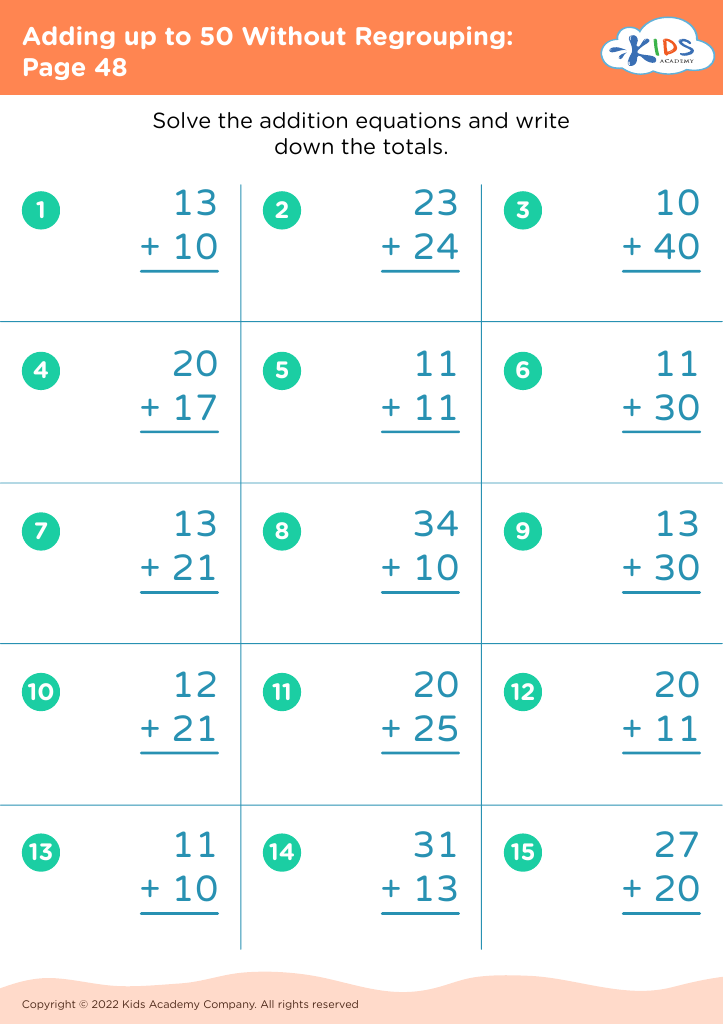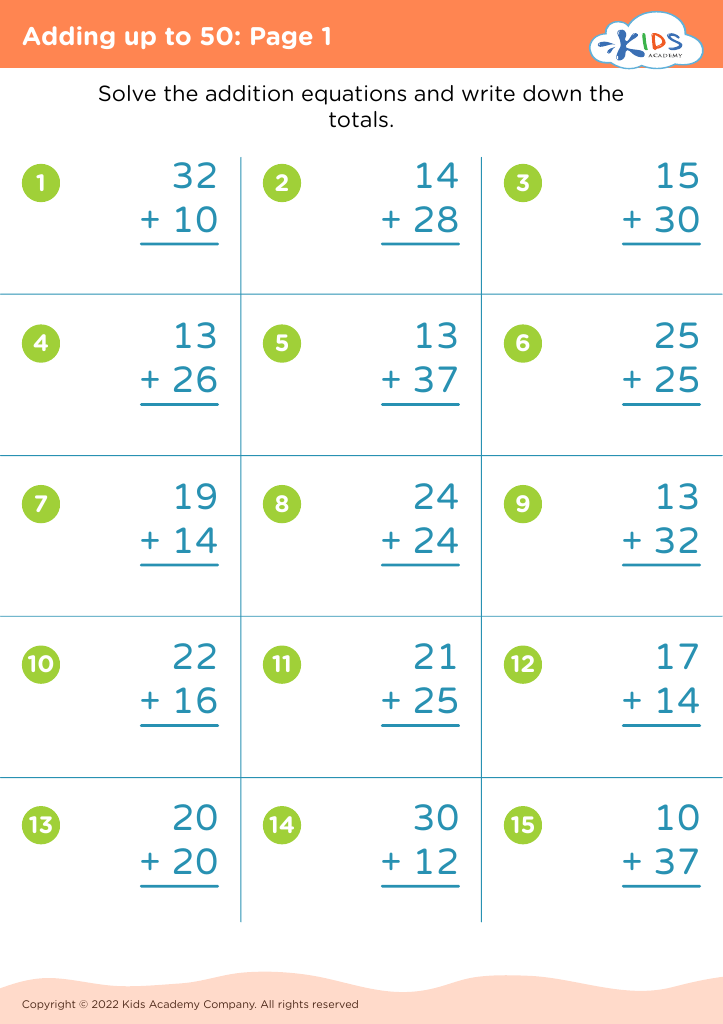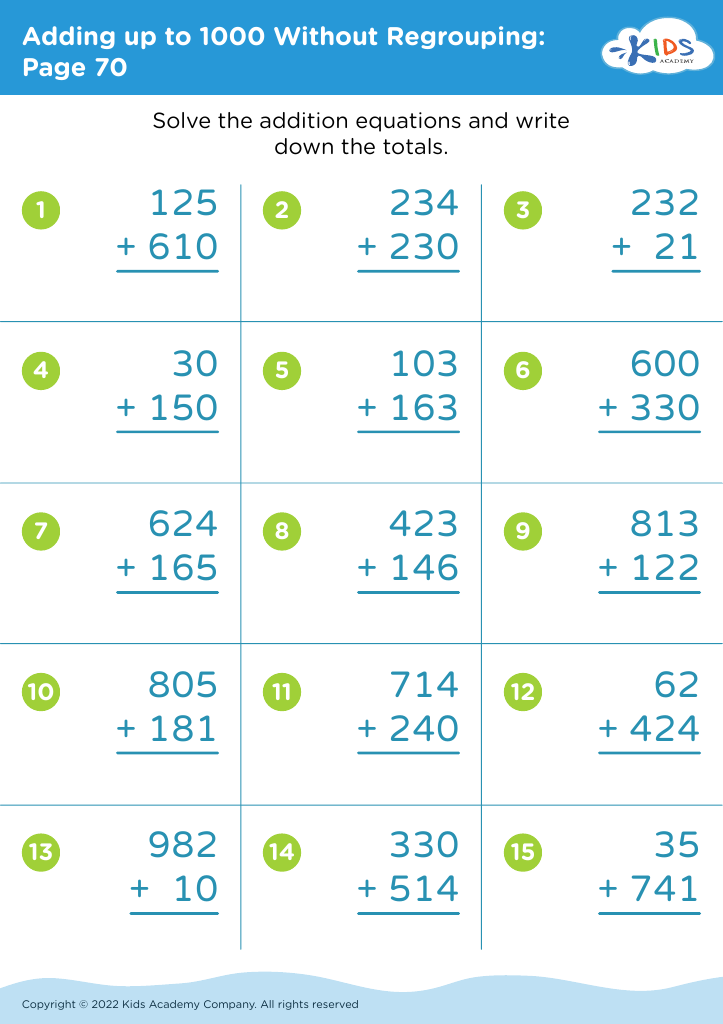Basic Addition Addition & Subtraction Worksheets for Ages 4-7
21 filtered results
-
From - To
Welcome to our Basic Addition and Subtraction Worksheets designed for children aged 4-7! These engaging activities help young learners master fundamental math skills in a fun and interactive way. Our worksheets are carefully crafted to introduce addition and subtraction concepts through colorful illustrations and relatable scenarios. Parents and teachers can easily incorporate these exercises into their lessons, promoting number recognition, counting, and problem-solving abilities. With various difficulty levels, these resources cater to different learning stages, ensuring children build confidence as they progress. Explore our collection and give your child a strong foundation in math while enhancing their love for learning.
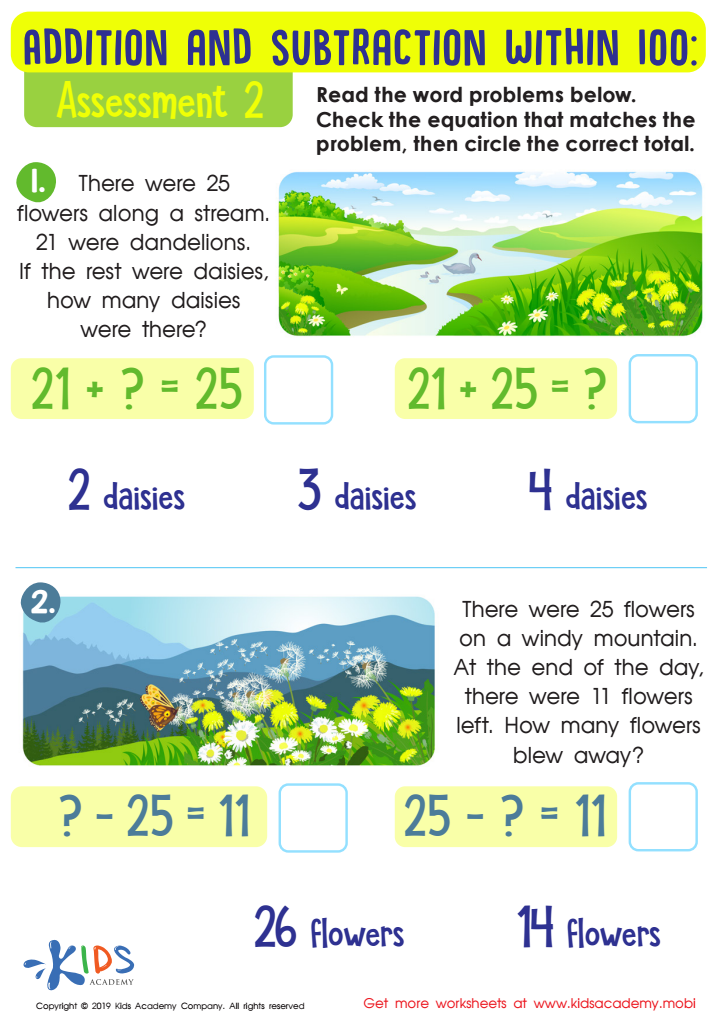

Assessment 2 Math Worksheet
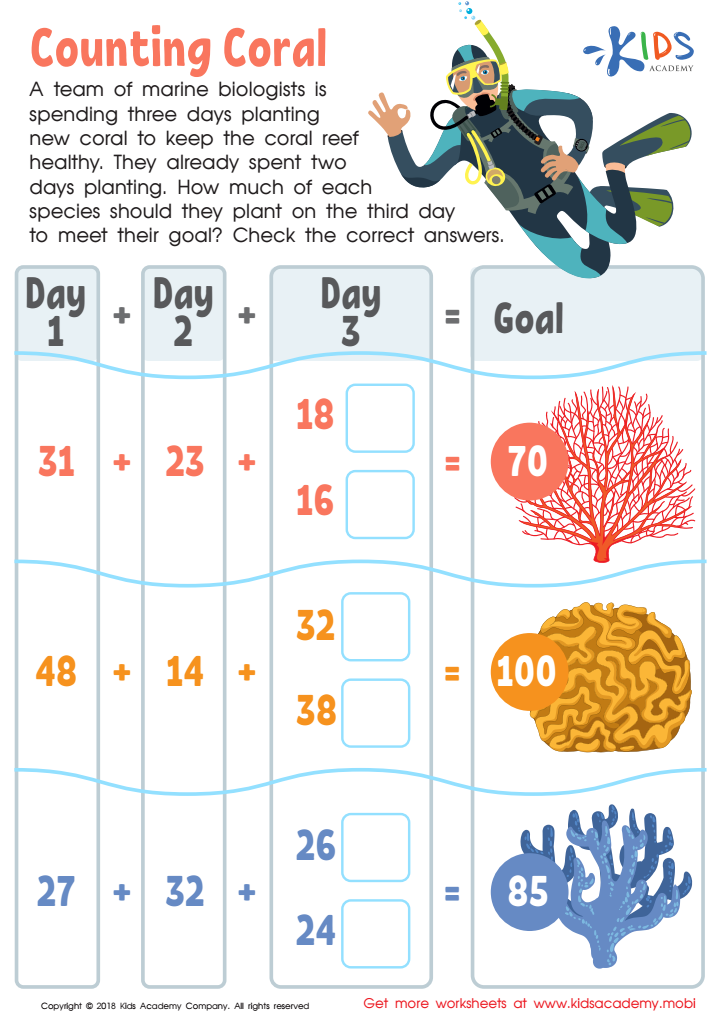

Counting Coral Worksheet
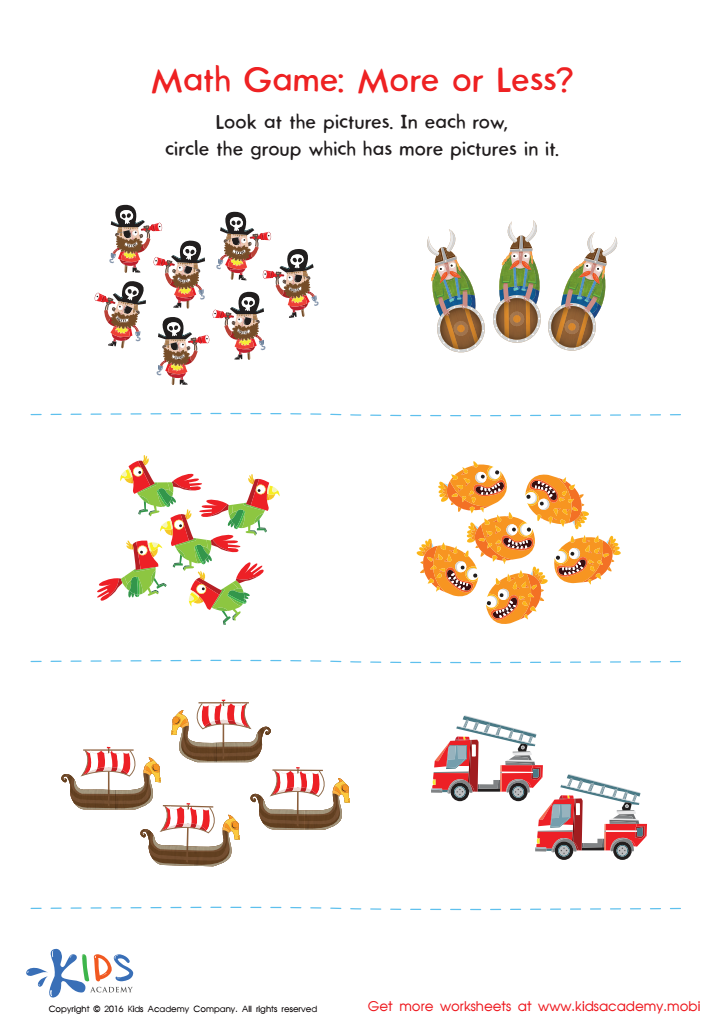

More or Less Worksheet
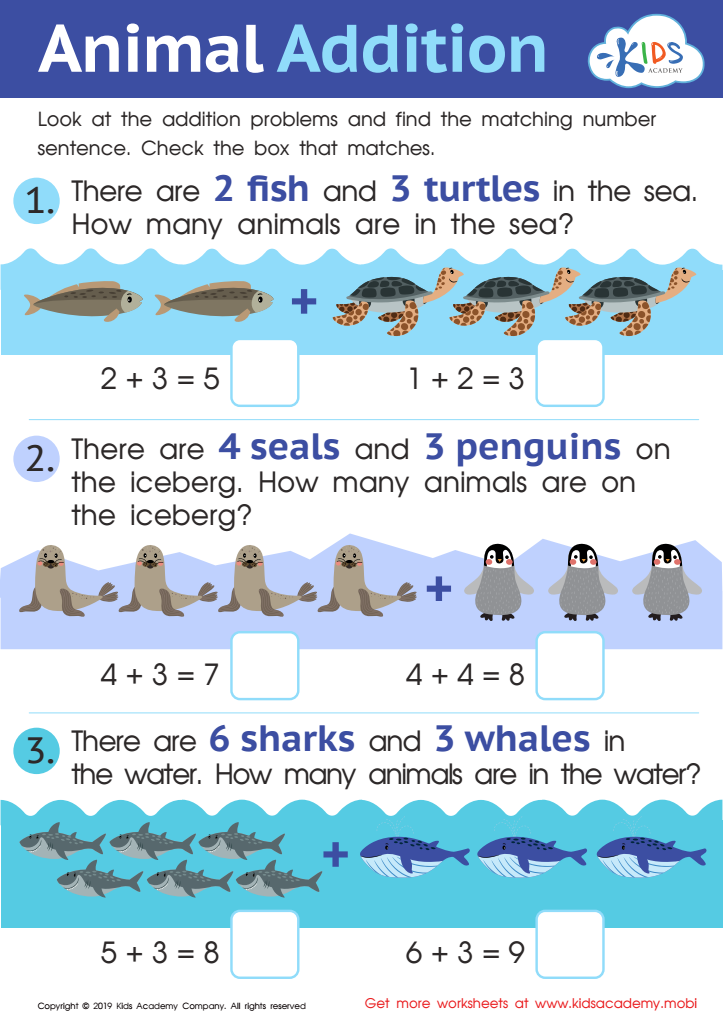

Animal Addition Worksheet
Basic addition and subtraction skills are fundamental building blocks for a child's mathematical understanding and overall cognitive development. For children aged 4 to 7, mastering these concepts is crucial for several reasons.
Firstly, these skills lay the groundwork for more complex mathematical concepts they will encounter later in their education, such as multiplication, division, and fractions. By developing a solid foundation in basic arithmetic, children are more likely to excel in higher-level math as they progress.
Secondly, understanding addition and subtraction fosters critical thinking and problem-solving abilities. These skills require children to analyze situations made of quantities, encouraging logical reasoning as they learn to develop strategies for solving mathematical problems.
Furthermore, the ability to perform basic mathematical operations enhances a child's confidence in their academic abilities. Confidence in math can boost their performance across subjects, as many disciplines rely on mathematical understanding.
Finally, these skills have real-world applications—children use math in everyday situations, such as shopping, budgeting, and sharing, helping them understand the value of numbers in daily life.
Thus, parents and teachers play a vital role in fostering these skills, ensuring children are well-equipped for both academic challenges and practical life.
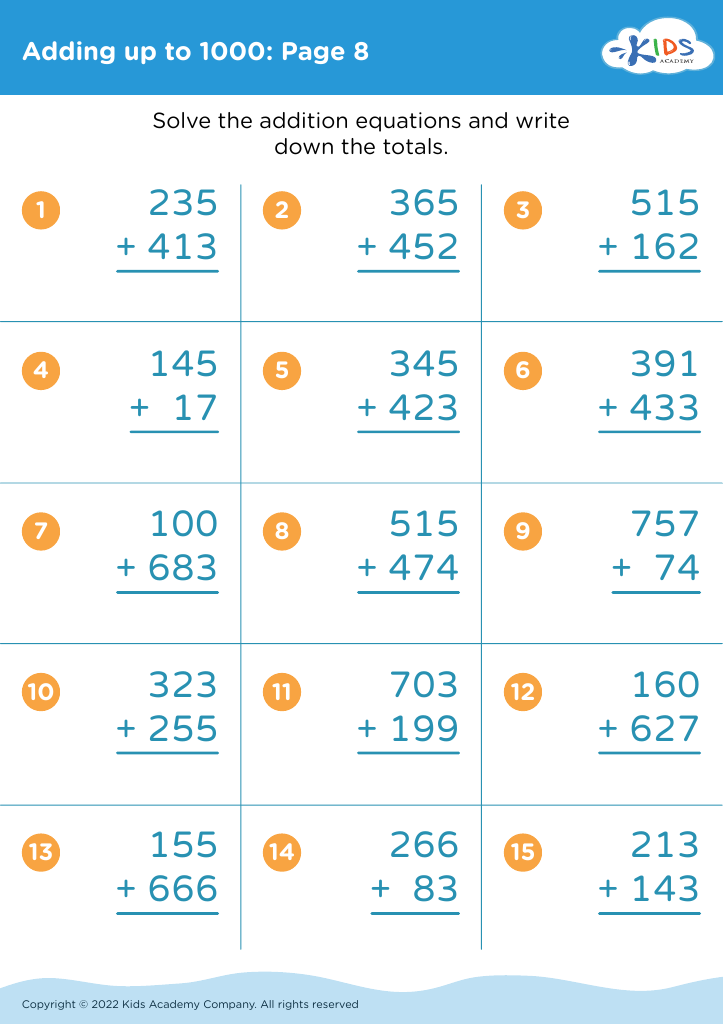

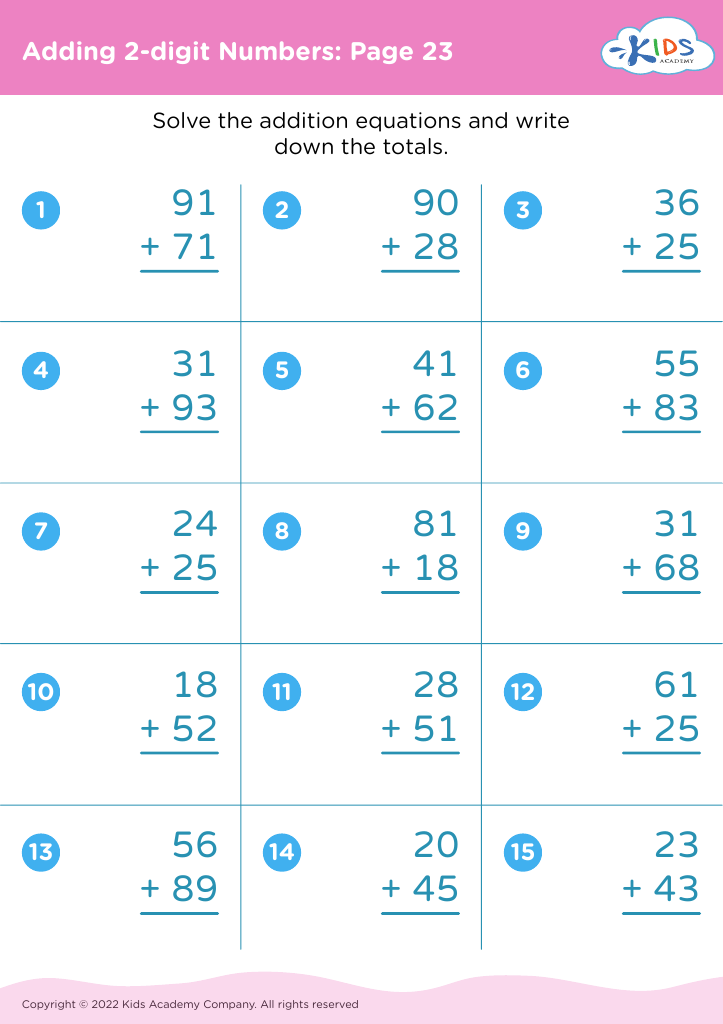
 Assign to My Students
Assign to My Students


